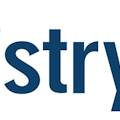Washington state's ABCD continues to broaden dental care for low-income children
Access to Baby and Child Dentistry (ABCD), which provides oral health care for Washington’s Medicaid-eligible young children, is approaching its 20-year anniversary, and the organization has been praised nationally, for its health promotions efforts aimed at Washington state’s youngest children.
A statement released by the organization reported, “The state outpaces all others in providing preventive care with more than 54 percent of Medicaid-eligible preschoolers and younger children getting oral care, according to the Centers for Medicare & Medicaid Services (CMS).”
ABCD is a public-private partnership managed by Washington Dental Service Foundation. The Washington Dental Service Foundation is a non-profit funded by Delta Dental of Washington. To visit the ABCD website, click here.
ABCD said it leverages public/private partnerships to involve dentists, physicians, social service agencies, early childhood development programs, and other health-care providers to identify and treat Medicaid-enrolled children from birth to age six.
The program also encourages pediatricians and family doctors to incorporate oral care in well child checkups.
Washington state’s governor, Jay Inslee, said, “Efforts that promote quality care and lower unnecessary expenses are essential for our health and economy ABCD hits the mark on both of those goals, reducing costs and improving overall health.”
The CMS, Pew Center on the States, W.K. Kellogg Foundation, Children’s Defense Fund, American Academy of Pediatric Dentistry and other national organizations have praised ABCD for its effectiveness and innovation.
“ABCD’s decade-long success on improving children’s dental health is a reflection of the sustained commitments and investments made by the program’s broad base of supporters,” a Pew study reported. “Other states would be smart to consider a similar approach.”
ABCD began in Spokane in 1995 in response to the fact that only a small number of low-income children were getting basic dental care, even though they had Medicaid coverage. Since then, ABCD has spread county by county with the help of three-year start-up grants from WDSF. With ABCD’s recent expansion to Clallam and Jefferson counties, the program is now reaching young children in every county of the state.
When ABCD expanded outside of Spokane County in 1999, only 21 percent of young Medicaid-insured children in Washington visited the dentist. The number has since more than doubled, with more than half (54.3 percent) of young children receiving dental services. Today, roughly 165,000 Washington children from infancy to age six see a dentist at least once a year.
Over a five-year period, ABCD helped cut in half the rate of untreated decay among low-income preschoolers, from 26 percent to 13 percent, according to a state Department of Health survey.
“Washington state is setting the standard for delivering preventive dental care to young, low-income children,” said MaryAnne Lindeblad, state Medicaid director in the Health Care Authority.
